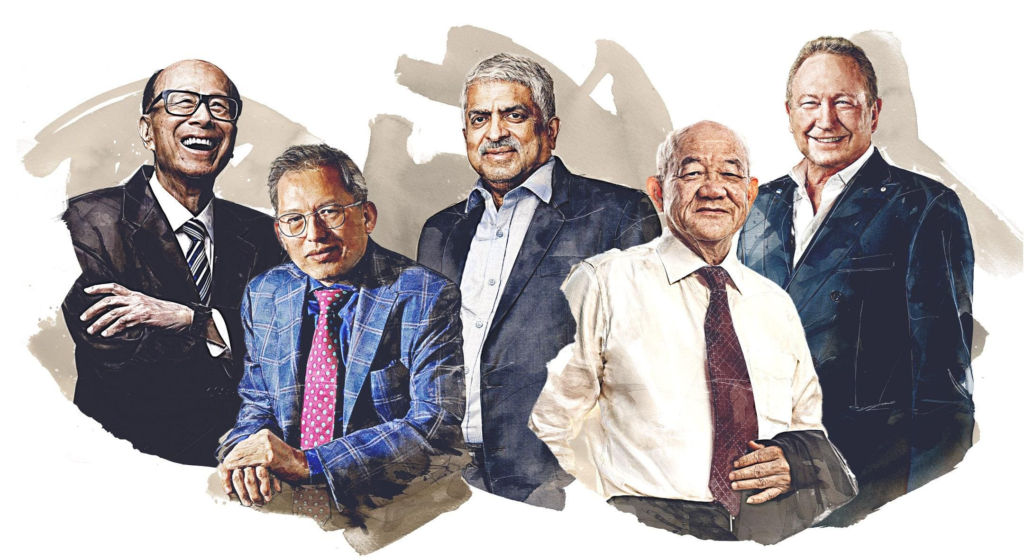FORBES ASIA’S 2023 HEROES OF PHILANTHROPY

Our 17th edition of the annual list spotlights 15 philanthropists who have in the past year shown commitment and donated generously to causes close to their hearts. Every year, our team sifts through dozens of names—from lifelong philanthropists to newcomers—to compile this select list from the Asia-Pacific region.
Some billionaires continue to endow their philanthropic foundations with significant amounts to carry on their missions. Japan’s Takemitsu Takizaki gave 7.45 million Keyence shares worth nearly ¥390 billion ($2.6 billion) to his foundation, while Australia’s Andrew and Nicola Forrest gave an estimated A$5 billion ($3.3 billion) worth of Fortescue Metals Group shares to their philanthropic arm Minderoo Foundation.
Several altruists on the list chose to direct their donations to advance higher education and research, especially in AI. Midea Group founder He Xiangjian pledged to donate 3 billion yuan ($410 million) to set up a fund supporting scientific research—including in AI and climate change—in China, while veteran philanthropist Li Ka-shing donated HK$60 million ($7.7 million) to support using AI in medical training and research at two universities in Hong Kong.
Demonstrating his continued commitment to education, Indonesian billionaire Low Tuck Kwong gave S$101 million ($73 million) to the Lee Kuan Yew School of Public Policy through his eponymous foundation. It will be used to fund leadership programs for policymaking and public service.
Mental health was another focus. In Hong Kong, New World Development’s Adrian Cheng set up a foundation that aims to support children’s mental well-being, while Australian billionaire James Packer, who has personally struggled with mental health issues, donated to research in this area at the University of New South Wales. Newcomers to the list include India’s youngest billionaire Nikhil Kamath, who became the country’s latest signatory of the Giving Pledge.
The list, which is unranked, considers those who are providing capital from their own money—not their company’s unless it is privately held and they are the majority shareholders—and demonstrating commitment to their select causes.
Edited by Rana Wehbe Watson


Recent Comments